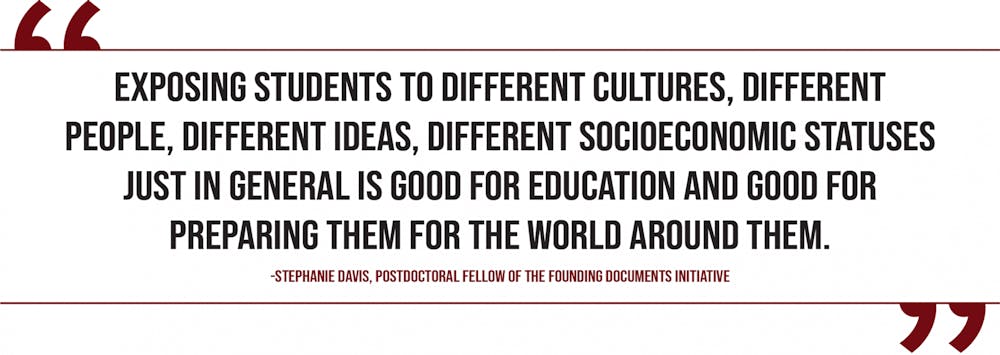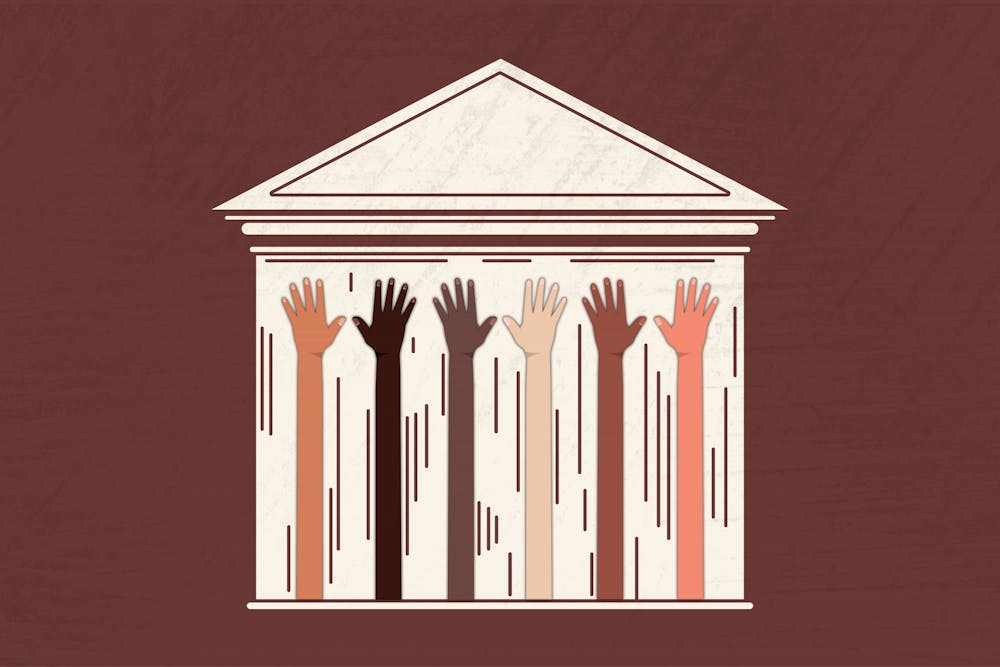As the U.S. Supreme Court weighs the constitutionality of race-conscious admissions, USC administrators say diversity will remain an important factor in the university's admissions process.
Race-conscious admissions, also known as affirmative action, put the factor of race into consideration to promote diverse communities on college campuses.
Julian Williams, vice president of Diversity, Equity and Inclusion at USC, said if this practice is overturned, the admissions processes at the univeristy will have to be analyzed, but he doesn’t think this change will create difficulties in recruiting a diverse student body.
“If that is struck down, I would imagine that some of the folks in our admissions office have to go back and really make sure that the admissions process that we’re undertaking is compliant with the law,” Williams said.
A diverse classroom can better prepare students for the modern world and create worthwhile discussions, according to Stephanie Davis, postdoctoral fellow of the Founding Documents Initiative in the political science department.
“I think everybody recognizes that there is a benefit to diversity,” Davis said. “Exposing students to different cultures, different people, different ideas, different socioeconomic statuses just in general is good for education and good for preparing them for the world around them.”

Currently, many schools already consider demographic criteria besides race, such as the applicant's socioeconomic status, parents' first language, disabilities and whether the applicant was raised by a single parent. Without affirmative action, universities would still be able to use those factors to select diverse student bodies while complying with the possible Supreme Court ruling.
Beyond the admissions office, this potential ruling would also affect how students fill out their applications.
“A student that's trying to tell the university who they are without having the ability to talk about their race is going to be difficult, if not near impossible,” Williams said.
Williams' primary concern is not with how the decision may impact USC but how other higher-education institutions' may see demographic shifts.
“What happens when these laws pass, especially at these highly-selective institutions, is that typically the number of students of color — black, brown and indigenous — goes down precipitously,” Williams said.
Those who disagree with this potential ruling may question the Supreme Court as a representative institution for people of all races, but Davis said that is based on a fallacy.
"They'll look at the court, and they’ll say, 'Oh my gosh, they’re not representing us.' Well, that’s true. They were never meant to represent us. They were meant to interpret the law,” Davis said.
Derek Black, the director of USC's Constitutional Law Center, doesn't believe the elimination of affirmative action would decrease overall student enrollment. However, he thinks it could impact which universities minority students choose to attend.
"Campuses where (minority students) become more underrepresented may look like places they're less interested in going, so what you might see is more students gravitating towards different institutions," Black said.
The Constitution's 14th Amendment applies only to public schools, so admissions decisions at private institutions are governed by a different set of rules. The only law pertaining to race at private institutions is Title VI of the Civil Rights Act of 1964, according to Black, and those differences could sway college decisions of minorities.
Davis said that the American people are asking the Supreme Court to do things out of their power and control. If affirmative action is overturned, Davis said the Supreme Court isn't the only group of people to blame.
“Why are we begging the court to change things when it's easy enough to vote people out of office that aren't making the changes that we want?” Davis said.

